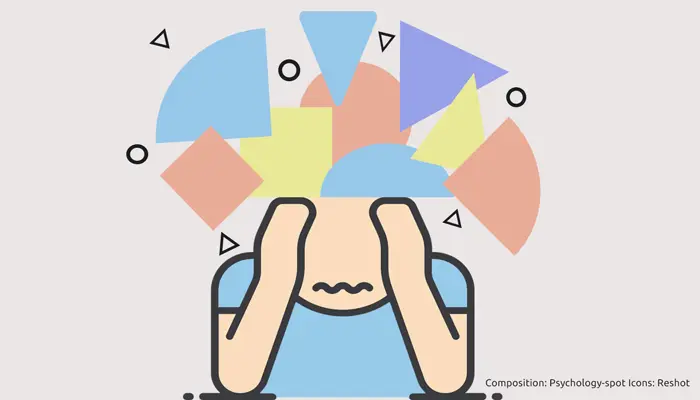
Permanent complaints that are never confirmed by clinical exams … Various symptoms that disappear while instead others appear, in an endless chain … Permanent doctor changes because no one understands their “condition” … These are some of the main characteristics of hypochondriacal people.
What is hypochondria?
Hypochondria is basically an excessive concern for our health. This is a very common problem with a high cost for health systems because it is estimated that almost 9% of patients who go to hospitals are hypochondriacs. This concern causes them to experience symptoms that do not exist objectively or maximize existing ones. As a result, the person suffers great distress and often falls into depression.
To diagnose hypochondria, the person must be convinced that he has at least two serious illnesses and should know in detail the symptoms of one of them. Of course, this person will undergo a series of physical exams and no sign of the problems he’s referring to will appear.
In addition, normally the hypochondriacal person has an intense fear of suffering from these diseases, is overly concerned about the quality of medical examinations and the discomfort persists for more than six months, causing considerable deterioration in the work area or in interpersonal relationships.
It is worth clarifying that although in the popular imaginary there is an identification between hypochondria and old age, the truth is that a large part of hypochondriacal people are men around 30 and women over 40. These people spend many hours studying their body and reactions carefully, until they make their own diagnosis, which generally falls into contradiction with the one made by the doctor. Therefore, it is common for them to go from hospital to hospital, looking for a doctor to confirm their fears.
Almost always hypochondriacal people are aware of the latest diseases and treatments and become expert nutritionists because, deep down, they are really afraid of suffering from some disease. Thus, little by little, health and pathologies become their only topic of conversation. When this disorder reaches its peak, there is a severe deterioration of their interpersonal relationships because they can even give up social life for fear of contamination.
The causes of hypochondria
The causes of hypochondria are many, so it is difficult to refer to a single factor. Among the most common causes are:
– An education based on fear or excessive protection. Usually, by delving into the life history of hypochondriacal people, we discover that from an early age they had an overprotective education or a close relative who expressed an excessive concern for their health.
– Traumatic experiences related to illness or death. Either because the person has suffered a serious illness or because has lived in a particularly intense way through a family member.
– Incorrect interpretation of symptoms. In many occasions hypochondria is unleashed from symptoms that are misunderstood. This person has some medical information and is afraid of any type of symptom. For example, you can confuse a muscular contracture in the left arm with an heart attack or sustained headache with a cerebral hemorrhage.
– Be particularly suggestible and have received alarming information about certain diseases. It is worth clarifying that it is important to be informed about the initial symptoms of the pathologies, since we can diagnose them in time, but people who are particularly suggestible can develop a hypervigilant attitude that eventually leads to hypochondria.
Of course, there are also other people who use diseases to attract the attention of the others. In those cases, hypochondria becomes a way to relate and keep family and friends at your side.
The hypochondriac treatment
Treating hypochondria is usually very difficult since these people do not want to recognize that the cause of their illness has a psychological origin. Therefore, it is usual for them to refuse to undergo psychological treatment.
In essence, the treatment for hypochondria is based on the combination of medications for depression with cognitive behavioral psychotherapy. In fact, it is usually very common for a psychiatrist and psychologist to work as a team to deal with these types of cases. Medications reduce discouragement but are not enough to eliminate the ideas of disease but at the same time, without them, it is difficult to be able to perform a successful psychological treatment.
Psychotherapy is aimed at alleviating the anguish and fear that these people feel, teaching them how to deal with their problem. A vital point lies in learning to differentiate the real symptoms from the fictitious ones. Techniques such as systematic desensitization, thought arrest and muscular relaxation technique are often used.



